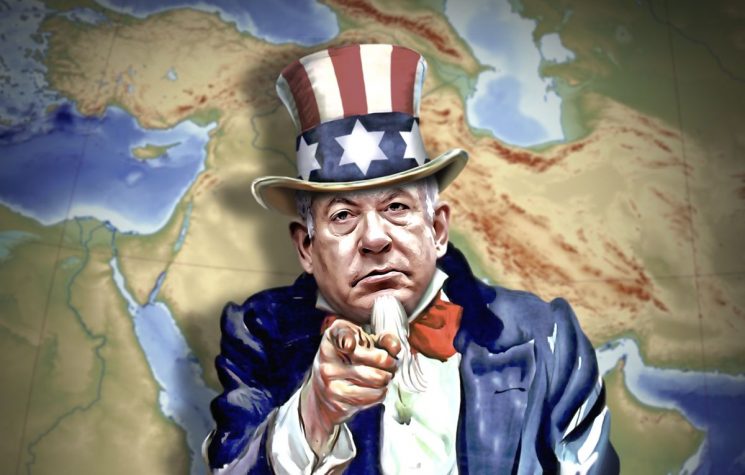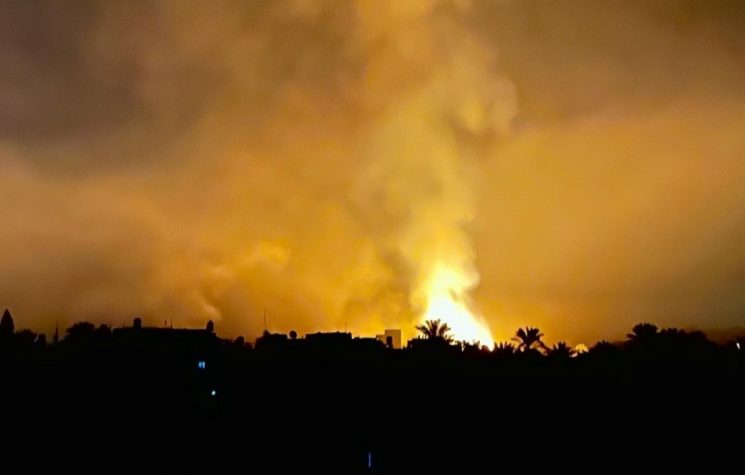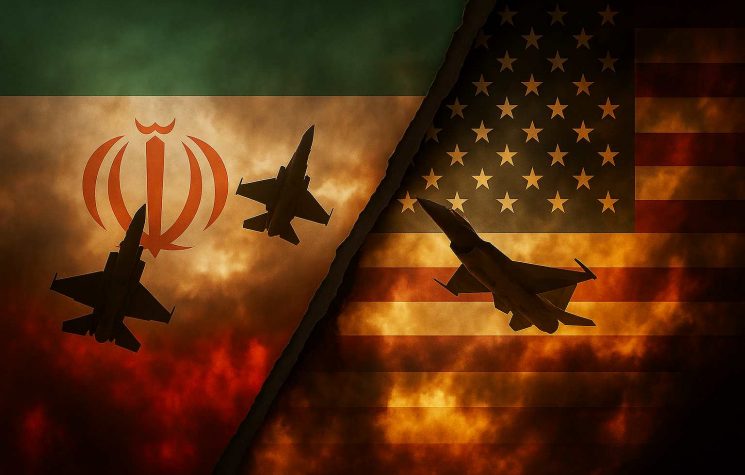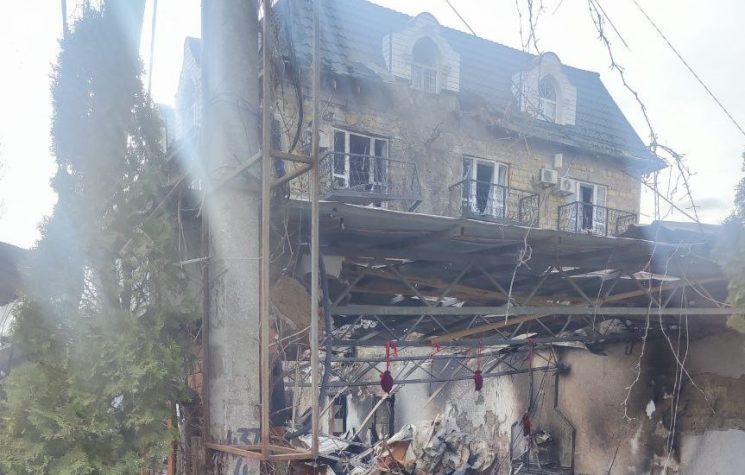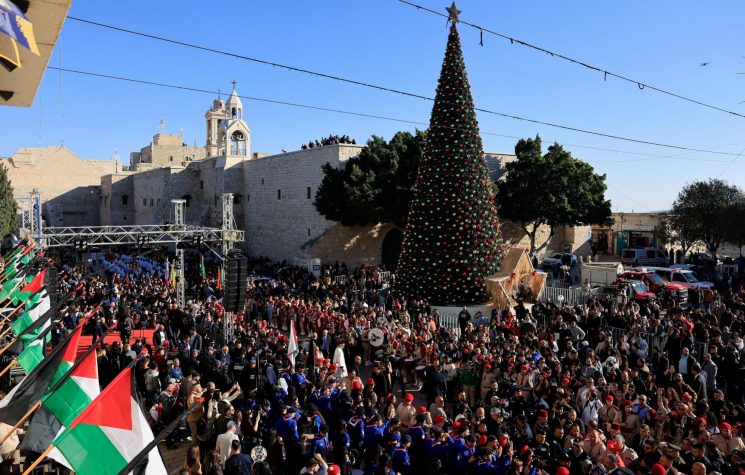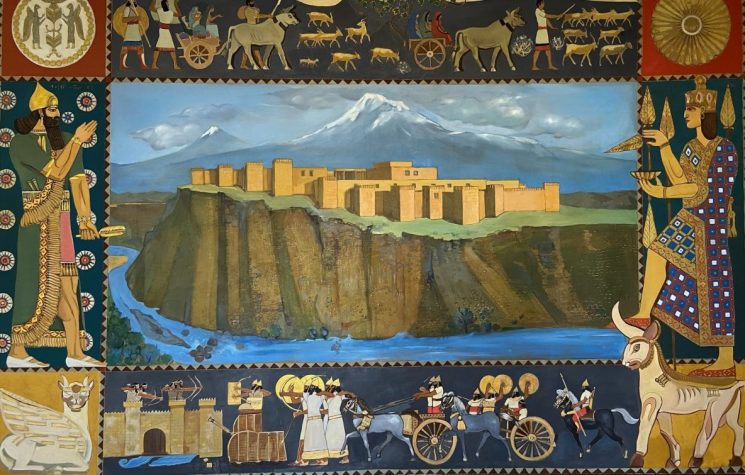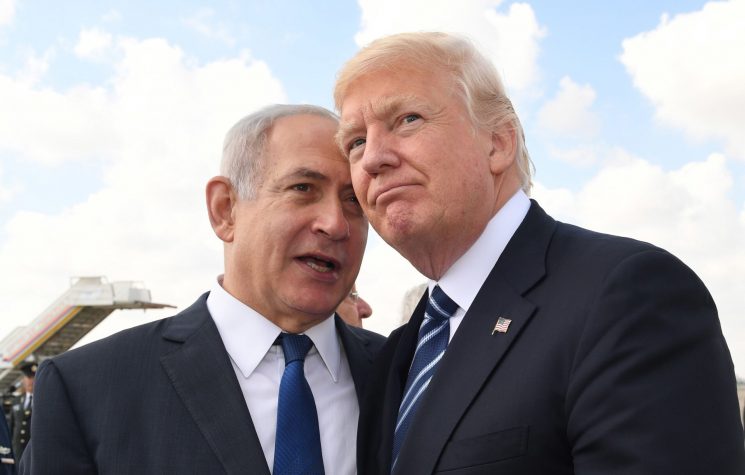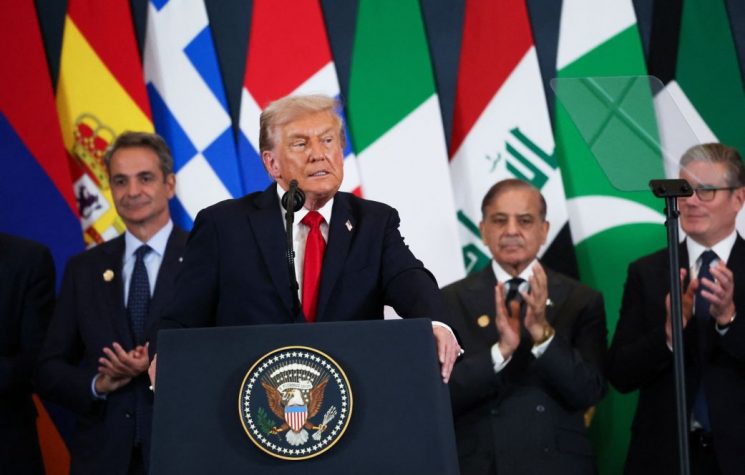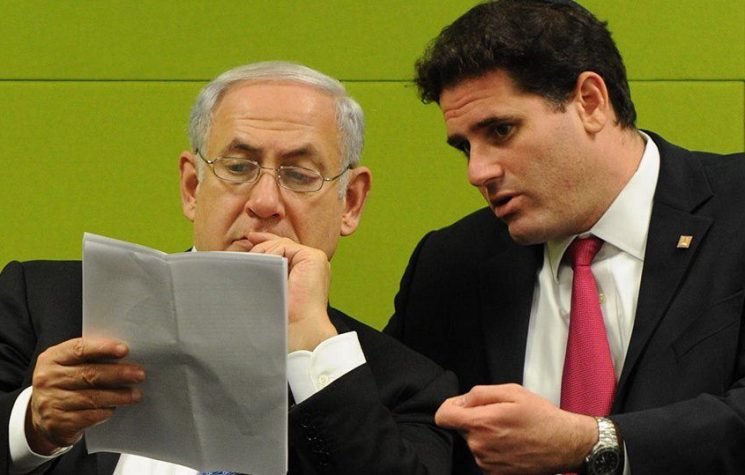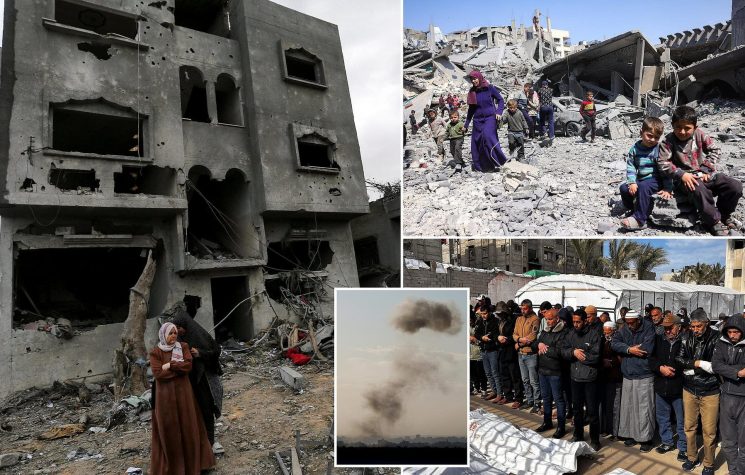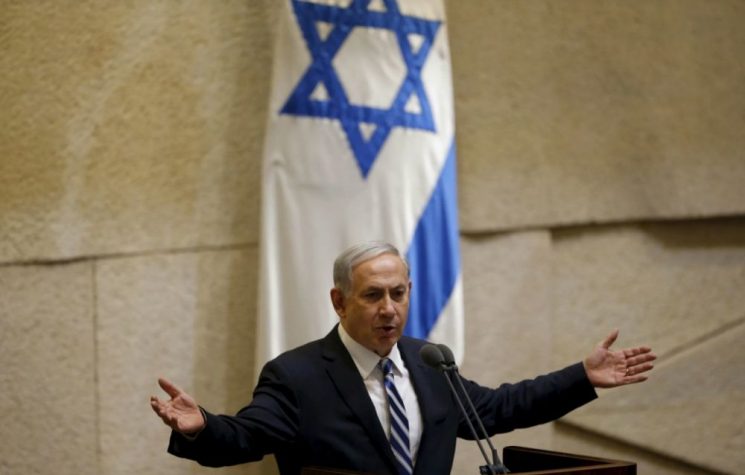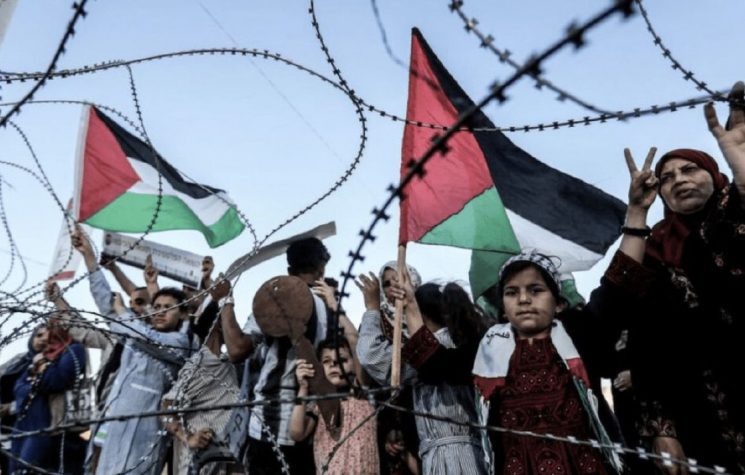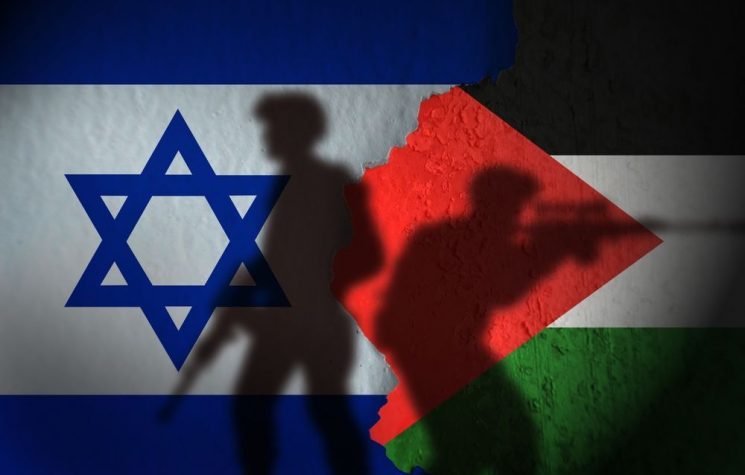In Greater Israel, there can only be Israeli Zionism. Christianity and Islam must first be exploited, then banned, Lorenzo Maria Pacini writes.
Join us on Telegram![]() , Twitter
, Twitter![]() , and VK
, and VK![]() .
.
Contact us: info@strategic-culture.su
The plan is clear
Four weeks after the signing of the Abraham Accords—signed on September 15, 2020, with U.S. mediation and involving the United Arab Emirates and Bahrain—Israeli urban planning authorities have authorized the construction of 4,948 new homes in the occupied territories of the West Bank. No significant public statements, no troop movements: just bureaucratic approvals marking a further step in the expansion of Israel’s presence. This advance, shrouded in the rhetoric of ‘peace’, took place in silence, reflecting a well-established approach: proceed with normalization when the region is compliant and intensify colonization when international attention wanes.
This logic is rooted in the expansionist model of Zionism: where possible, military force is used; where this is not convenient or feasible, soft penetration is used in the form of security agreements, economic cooperation, and intelligence alliances. This dual strategy—based on physical conquest and hegemonic consolidation—has been in place since 1967 and today extends unchecked from the Jordan River to the Atlantic Ocean.
Let us be clear: the Zionist project, in all its aspects, will not stop. The Arab world represents an obstacle to the construction of Greater Israel and the manifestation of Zionist hegemony.
The “Greater Israel” project manifests itself on two levels: on the one hand, the annexation of Palestinian territories, and on the other, geopolitical control of the region through indirect means. And, if we want to extend our projections, we must consider that Greater Israel is the starting point, not the end point.
This is a vision rooted in Zionist ideology, which envisages Jewish domination over the entire “Biblical Land of Israel.” When direct occupation is not sustainable, Tel Aviv prefers maneuvers of influence and destabilization that undermine the sovereignty of neighboring Arab states. The two dimensions—territorial and imperial—are interdependent.
This strategy has deep roots. Ze’ev Jabotinsky, the father of revisionist Zionism, wanted control over all of Mandatory Palestine and beyond, arguing that colonization should take place even against the will of the local populations. David Ben-Gurion, while publicly accepting the partition in 1937, saw that compromise only as an initial phase towards subsequent expansion, confirming the intention to extend the borders to the whole of Palestine once the Israeli military apparatus had been strengthened, as indeed happened. At first, Israel’s military power was insufficient for large-scale operations, so the “periphery doctrine” was developed, through which Israel cultivated alliances with non-Arab states and marginalized minorities (the Shah’s Iran, Turkey, Iraqi Kurds, Sudanese Christians), indirectly weakening its Arab rivals. This strategy, now adapted, is also visible in recent relations with the Druze communities in southern Syria.
Normalization means influence
Israeli penetration into the Arab world has reached an unprecedented level. The Abraham Accords have opened the door to large-scale economic, military, and technological cooperation. The historic treaties with Egypt and Jordan were only the beginning, with the United Arab Emirates subsequently becoming a prominent trading partner. The same is true in the Maghreb: Morocco, for example, has purchased weapons and signed industrial agreements in the drone sector, becoming a production hub for Israeli UAV systems. All this has created a geopolitical corridor linking Israel to the Gulf and North Africa, expanding its access to strategic routes, intelligence spaces, and crucial markets.
As economic relations intensify, colonization continues. Raze everything to the ground, indiscriminately; drive out the Palestinians, no questions asked; conquer the lands they consider “divine right.” Infrastructure is designed to isolate Palestinian communities in unconnected enclaves, making the formation of an autonomous state impossible.
Israel has also consolidated its presence in Syria (in the Quneitra region, near Damascus and Deraa), taking advantage of the chaos following the fall of Assad and the seizure of power by the jihadist group HTS led by Ahmad al-Sharaa (formerly known as al-Julani). In Lebanon, it maintains control of key areas such as the Shebaa Farms and the Kfar Shuba hills, as well as military positions along the Blue Line.
Expansion is masked by integration. Today, the Israeli occupation is no longer manifested solely through weapons, but is supported and fueled by diplomatic agreements and trade flows. “Normalization” has not stopped the occupation: it has made it more effective. Each new agreement with Arab countries increases Israel’s ability to extend colonization and strengthen military control. Plans are already underway to double the number of settlers in the Golan Heights and increase the military presence along sensitive areas. The consequences are being felt: Egypt is building a wall on the border with Gaza to manage possible flows of displaced persons; Jordan sees its water resources threatened; Syria and Lebanon are under increasing pressure to normalize relations with Israel.
The Greater Israel project is advancing: on the one hand, it is swallowing up territories; on the other, it is influencing the sovereign choices of Arab states. Together, they represent two sides of the same strategy: annexation and subordination.
And all this, let’s be clear, will not stop at Palestine.
Zionism is viscerally anti-Christian and anti-Islamic. Anything that does not adhere to Zionist Judaism must be eliminated.
From an Islamic perspective, criticism of Zionism is based on several levels. First of all, Zionism, in its state form, has led to the confiscation and occupation of Muslim holy sites—primarily Al-Aqsa in Jerusalem—with a progressive erosion of access to and management of sacred places. This is not only a political violation, but also a spiritual one, as Islamic sovereignty over Jerusalem is considered a religious duty, rooted in the Quran and prophetic tradition. The Zionist rejection of Arab sovereignty – expressed in the marginalization of Islamic religious institutions in the occupied territories – is a denial of the Umma, the unity of the community of believers, and of its legitimacy to safeguard the places of Islam.
Similarly, Christianity, especially in its Eastern expressions, has also suffered from an exclusionary Zionist approach. The Zionist theological imagination, which demands a Jewish “territorial redemption” of Palestine, excludes the historical and cultural presence of indigenous Christian communities, reducing them to tolerated or suspect minorities. Talmudic hatred of Christians is well known. For many Palestinian and Middle Eastern Christians, Zionism represents a form of nationalist secularization that empties the Holy Land of its universal value, transforming it into an exclusive ethnic-religious property.
In its quest to create an exclusive Jewish state, Zionism has promoted dynamics of exclusion and delegitimization of the other Abrahamic religions historically present in Palestine. This makes it ideologically antithetical to any pluralistic and shared vision of the holy places and communities that have coexisted there for centuries.
We should not be surprised if we soon see conflicts arise between the powers of the Arab world or, by extension, in other Islamic countries, such as in Asia, precisely because of their geopolitical and geoeconomic relations with the Zionist entity.
Because, ultimately, this is the plan: in Greater Israel, there can only be Israeli Zionism. Christianity and Islam must first be exploited, then banned. At any cost.















